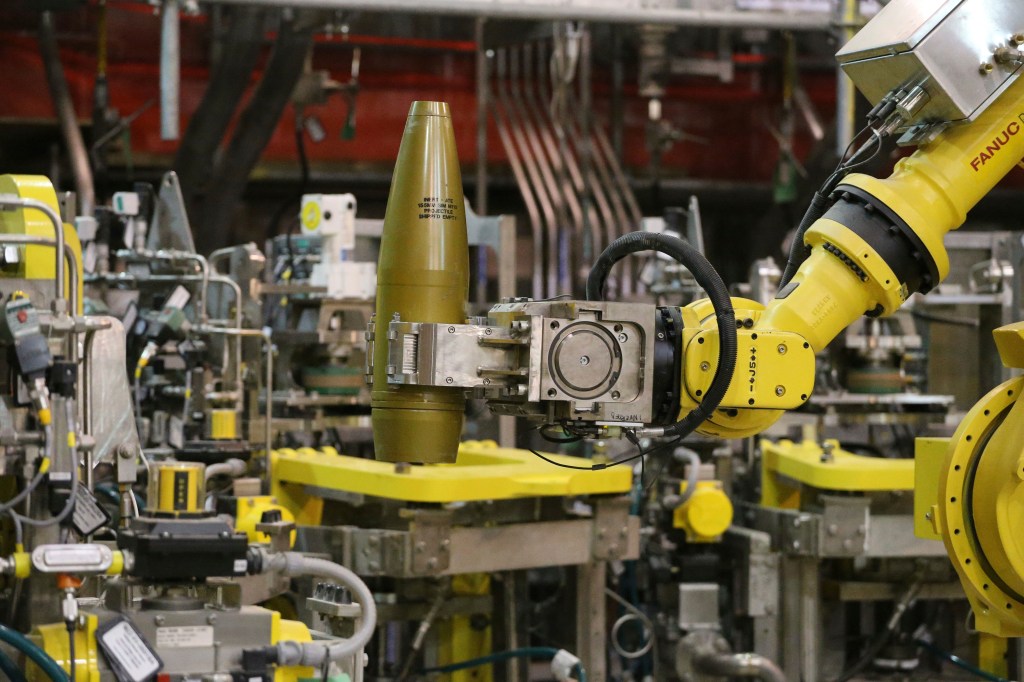
U.S. destroys last of its chemical weapons; opinion
[ad_1]

This month the world witnessed one of the greatest arms control milestones of our generation. On July 7, we eliminated the United States’ last remaining stockpile of chemical weapons, in accordance with the Chemical Weapons Convention (The Convention).
Overall, we destroyed 30,610 tons of chemical weapons, including at the Pueblo Chemical Depot. This global effort to destroy the world’s stockpiles – which has been decades in the making – has made the world a safer place for us and for future generations, and it proved that verifiable disarmament can work.
It has been a long and sometimes challenging road, but we persevered and overcame obstacles to ensure the United States carried out the mission safely, effectively, and in partnership with state and local communities. I sincerely thank the dedicated Americans who were employed at facilities in Johnston Atoll and at installations in Alabama, Arkansas, Indiana, Maryland, Oregon, Utah, Colorado, and Kentucky.
They all contributed to this significant achievement, ensuring its execution in a safe, transparent, inclusive, and environmentally friendly manner, even during the COVID-19 pandemic.
The final chemical munition, a sarin-filled rocket produced in the late 1950s, was destroyed on July 7 at an Army depot outside Richmond, Kentucky. When I visited that site in June, I was honored to meet members of the local community and workforce involved in this noble mission. I listened to their stories and experiences, including hearing from many who have worked in chemical weapons destruction their entire careers. I reflected on my own experience as one of the legal advisors in the U.S. delegation that negotiated the Convention in its earliest days, and together we shared a deep sense of closure and accomplishment. They were not only excited to finish the destruction as a capstone to their careers, but also to be a part of this great, humanitarian achievement for the United States and the world. It was heartening to hear the pride in their voices in what they – and ultimately the United States – accomplished.
This is also a seminal milestone for the international body that oversees implementation of the Convention, the Organization for the Prohibition of Chemical Weapons, which in 2013 received the Nobel Peace Prize for its extensive efforts to eliminate chemical weapons. As one of the most widely adopted multilateral treaties in history, the Convention is proof that the international community can build common understanding, set common goals, and carry forward a shared commitment.
Although all declared chemical weapons stockpiles have been destroyed, the United States is clear-eyed on the remaining tasks to ensure the world is free of chemical weapons. There are four countries that have not joined the Convention, and regrettably the United States assesses that Russia and Syria have not complied with their obligations to fully declare and destroy their chemical weapons as required under the Convention. The United States condemns the use of chemical weapons, and we will continue to actively work with our partners to hold to account those who use, develop, stockpile, or proliferate chemical weapons, including Russia and Syria.
Three decades ago, through the norms established under the Convention, we all agreed that we should live in a world without the threat of chemicals being used as weapons. Having crossed the finish line on destruction of our chemical munitions, our work continues, ensuring that chemicals are only used for peaceful purposes.
Ambassador Bonnie Jenkins is U.S. Under Secretary of State for Arms Control and International Security
Sign up for Sound Off to get a weekly roundup of our columns, editorials and more.
To send a letter to the editor about this article, submit online or check out our guidelines for how to submit by email or mail.
[ad_2]
Source link




